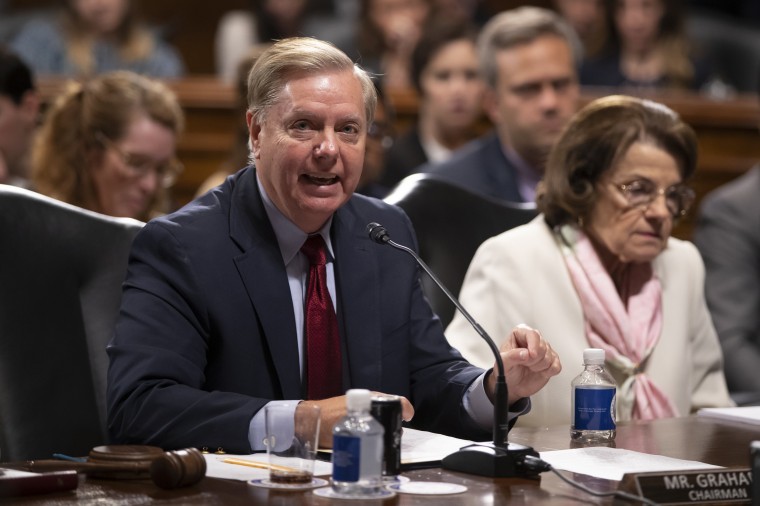While far too many Senate Republicans are engaging in nihilistic hypocrisy when it comes to the U.S. Supreme Court, Senate Judiciary Committee Chairman Lindsey Graham (R-S.C.) is in a uniquely ridiculous position -- which he put himself in.
Four years ago, the South Carolinian participated in a 10-month blockade against a high-court nominee, insisting that he couldn't tolerate a confirmation process during an election season. “I want you to use my words against me,” Graham said at the time. “If there’s a Republican president in 2016 and a vacancy occurs in the last year of the first term, you can say Lindsey Graham said let’s let the next president, whoever it might be, make that nomination.”
Two years later, he further committed to doing the right thing. “I will tell you this: If an opening comes in the last year of President Trump's term, and the primary process has started, we’ll wait to the next election," the GOP senator publicly declared. For emphasis he added, "Hold the tape.”
Now, right on cue, Graham is breaking his word. By way of a defense, he initially justified his betrayal by pointing to a Senate rule change in 2013 on lower-court nominees, but this argument was quickly debunked as nonsense, intended to fool those with short memories.
Yesterday, Graham tried a different pitch.
Now he has reversed course, informing Judiciary Committee Democrats in a letter Monday that he intends to move forward with hearings on Trump’s Supreme Court nominee. He said that “after the treatment of Justice Kavanaugh I now have a different view of the judicial-confirmation process.”
Ah, I see. Graham made public declarations about his deeply-held commitments, but he feels justified in abandoning his own principles because Justice Brett Kavanaugh's feelings were hurt when he was accused of lying about a sexual assault.
That's a pitiful argument, made worse by the fact that Graham's timeline doesn't quite add up.
I went back and found the exact date of the senator's "hold the tape" comments: it was at a forum held on Oct. 3, 2018. That wouldn't be especially notable, except Dr. Christine Blasey Ford’s testimony to the Senate Judiciary Committee was on Sept. 27, 2018. The Republican-led panel advanced Kavanaugh's nomination a day later, on Sept. 28, 2018.
In other words, Graham would have us believe he broke his word because of the allegations against Kavanaugh. But the calendar betrays him: Graham heard from Blasey Ford, voted for Kavanaugh's nomination, and then committed to not voting on a Supreme Court nominee during an election. In fact, it was nearly a week later.
Maybe the senator can come up with some other rationalization for breaking his word? Or alternatively, maybe Graham can just admit that he's motivated entirely by maximalist partisan politics?

